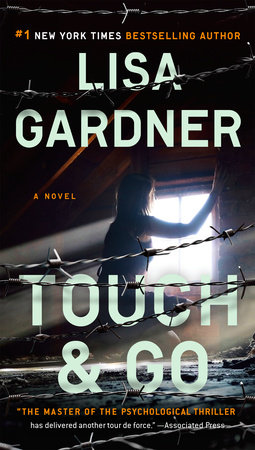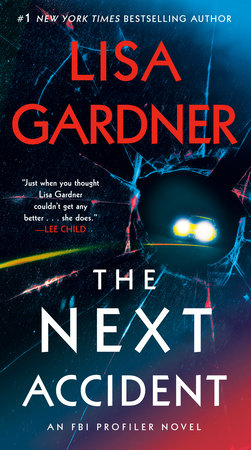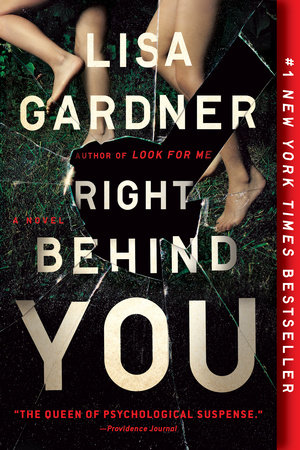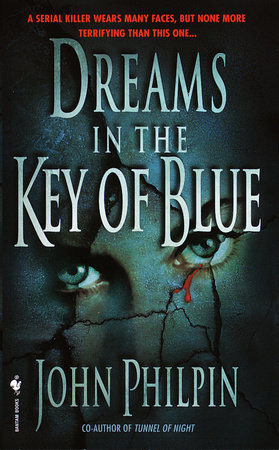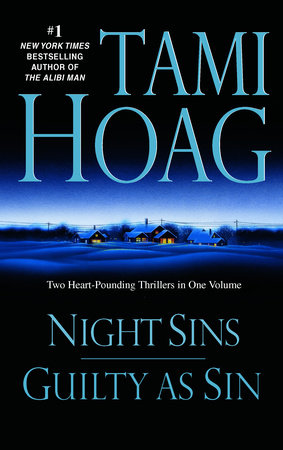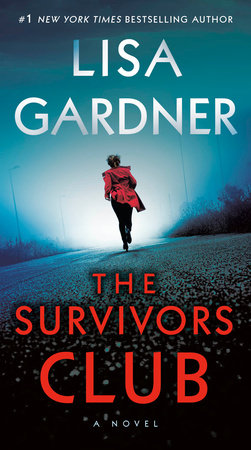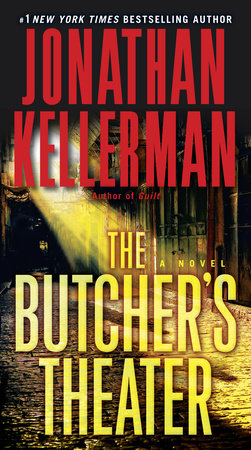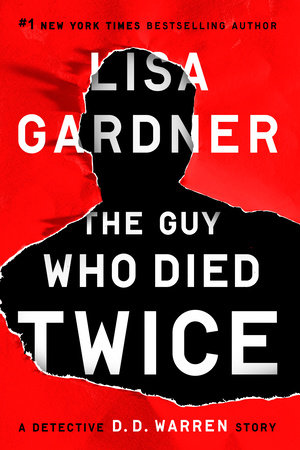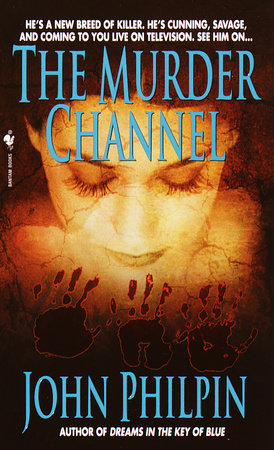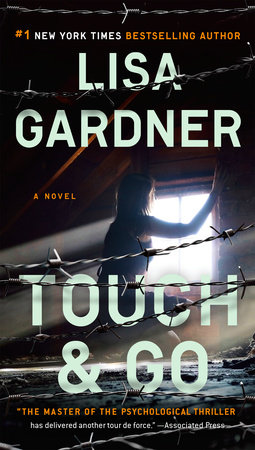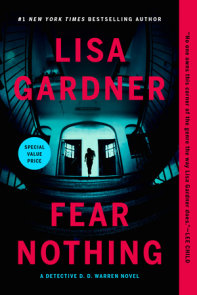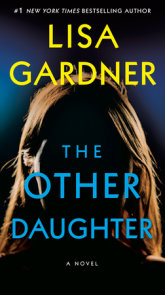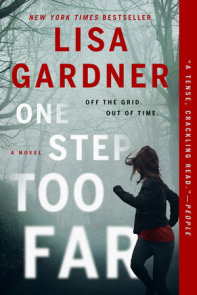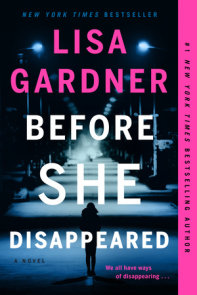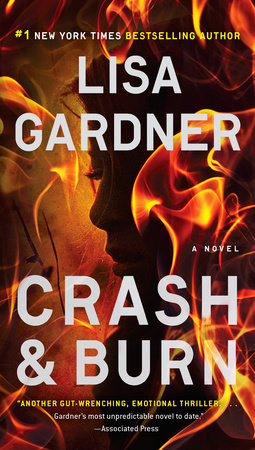Author Q&A
A conversation with Lisa Gardner,
author of Touch & Go
How did you come up with the idea for Touch & Go?
I’ve always wanted to kidnap a family. Abduction is a time-honored suspense hook. Add to that the dynamics of a family in turmoil, and you have great possibilities for murder and mayhem. The issue was how to take such a classic set up and make it fresh. I mean, where would you take this family? Wilderness? It’s been done. Basement? It’s been done. Caverns, bunkers, bomb shelters, ditto. Then, one day I toured a mothballed prison, and my writer’s mind went, GOT IT.
For your research for Touch & Go, you toured a recently built prison. What was that like?
Initially, I wasn’t incredibly excited about touring a new prison facility. Having visited a number of occupied prisons, I thought an empty building would be pretty boring. But how many times do you get a chance to check out a maximum security facility before it opens, right? Turns out, empty prisons are creepy. The size and scale of everything is nearly mind-boggling. Sure, the cells are tiny, but the prison blocks themselves, the yawning hallways, the sprawling cafeterias, the endless echo of your own footsteps… Let’s face it. I had to use the space for evil. I also learned there are a number of unopened new prisons, plus mothballed old prisons around the country. So I did a bit of digging, and yes, created my own fictional amalgamation. I’d never gotten to design my own prison before. It was kind of fun!
Touch & Go involves a number of characters, a whole family, the group of people who kidnap them, and a number of law enforcement personnel. Which characters were the hardest to write and which came easily? Do you have a favorite?
For Touch & Go I moved the action to my own backyard in northern New Hampshire. That meant I needed a New Hampshire detective. Thanks to the good graces of the county sheriff’s department, I got to spend several days interviewing the sergeant overseeing the detectives unit. It was fascinating! After all these years of looking through D.D. Warren’s Boston cop eyes, to take on a law enforcement world that is so rural and back country and crazy… As Sergeant Santuccio put it, north of Concord is a completely different playing field, where back up can be hours away, most officers have drawn their weapons at least once on the job, and no one has enough officers, investigative tools or time to get things done right, and yet that’s exactly what they do again and again. Amazing! All this research went into the making of my new character, Sergeant Wyatt Foster, a cop who wants to be a carpenter, or a carpenter who wants to be a cop. I think he steals the show.
Libby Denbe is a very realistic and flawed character. Did you intend her to be seen as a hero or as partially deserving of her fate?
Libby is…raw. That’s how I viewed her the entire time I was writing the novel. A smart, capable woman, astute enough to realize that she has screwed up her life, but just not emotionally ready to pick herself up and rebuild. She’s hurting, still grieving for her fractured marriage, her unrealized dreams. Does she deserve what has happened to her? That’s a good question for book clubs to debate!
How did you start writing?
I’ve always loved to read and I’ve always loved to write. That geek in the back of Latin class who was working on a short story instead of listening to her teacher’s lecture—that was me! One summer, I decided to see if I could write a whole novel. I spent my days drafting a book and my nights working as a waitress. The results were one complete, albeit truly dreadful novel, plus shorter hair that I’d caught on fire twice serving an appetizer called flaming saganaki. Realizing my future in food service was limited, I focused on polishing my novel. The rest, as they say, is history.
How many books have you published so far?
Touch & Go will be my 28th novel.
Can you tell us a little about your writing schedule, editing and revision process, novel development, etc.? How long does it take you to write a story?
I like to write first thing in the morning. I’m always trying to get a certain number of scenes done each week. Sometimes that means writing a few hours a day. Sometimes that means writing ten hours a day. It depends on how fast the hamster is turning the wheel in my brain. I start with a general outline of each novel. The major plot points, key scenes, research that needs to be incorporated into the story, etc. I change a lot as I write, however, so the end novel may bear little resemblance to my starting idea. Sometimes characters take over. Sometimes I come up with a better idea for a plot point or a plot twist, so I reorient the story to make the new and improved concept work. It usually takes me six months to draft a novel, then three months to polish it.
How do you do your research?
Whenever possible, I try to interview professionals in the field. Personally, I don’t have a law enforcement background, so I generally start with a call to some poor detective who has the misfortune to pick up his phone. I’m honestly touched and amazed by the thorough assistance I’ve received. I’ve interviewed FBI agents, ATF agents, state police, local police, corrections officers, etc., and every single one of them has taken significant time out of his or her day to answer my questions. They are very nice people doing very tough jobs.
Who are your role models? Which writers have influenced you the most?
I remember being twelve-years old and reading M.M. Kaye’s The Far Pavilions. I was completely enthralled by that novel. The way she made the setting, history, and characters come so richly alive. From the beautiful romance to the gritty battle scenes, I thought reading that book was one of the most intense experiences I’d ever had. Of course, I was twelve. But I still love that novel. I reread it every few years, and every few years I’m enthralled all over again. I also enjoy Stephen King, Lee Child, Linwood Barclay, C.S. Harris, Tess Gerritsen and Karin Slaughter.
What has been your favorite question or comment by your fans?
I like it when fans tell me I’ve kept them awake all night, or made them forget to feed their kids dinner, or kept them from going into to work because they simply had to finish my book. It gives me a warm feeling inside. In all honesty, I’m really honored by how much people enjoy my novels and I love to hear from readers.
I’m an aspiring writer. Can you give me any advice on finding an agent or editor?
I recommend that any serious writer join a writers group. Three great organizations are Romance Writers of America and its suspense subchapter Kiss of Death; Mystery Writers of America; and International Thriller Writers. These groups offer local chapters where you can meet other aspiring writers as well as published authors. They also sponsor local conferences where you learn about the craft of writing, the business of publishing, and pitch your book ideas directly to agents and editors. All in all, a lot of support and services in return for fairly modest yearly dues.
What is the best and the worst thing about your job?
Best thing about being a writer is working in my pajamas, not to mention that chocolate is a “brain food” which explains most of my afternoons. Worst thing is deadlines. I wish I could just play with my characters forever. But sooner or later, all good writers must wrap up their stories and hand them over. D’oh!
Any surprising/hidden talents other than writing?
Actually, I think one of the lynchpins of my career is that this is it. See, I wrote my first book when I was 17 and sold it when I was 20. Normal authors don’t do that, because they’re busy exploring other talents. They’re creative types flirting with drawing, playwriting, TV producing, home decorating, legal, medical or journalistic careers, etc., etc. Not me. I tried a little bit of everything, and failed each time. Can’t draw, suck at poetry, have no patience for the corporate world. But somehow, I love stories. Give me a single line, and I can tell you the movie or book it’s from. Freakish, but there you have it. I love books, books love me, and I’ve been publishing ever since.
If you weren’t a writer, what would be your fantasy career?
I would love to be a criminologist! I don’t have a strong enough science background to go into forensics, but it’s the criminal mind that fascinates me the most anyway. I feel each of my novels explores the same basic, primordial question: What is the nature of evil? Interestingly enough, there isn’t one answer. Hence, I’ve gotten to write fourteen novels, instead of just the first. Evil can be born (The Perfect Husband), evil can be made (Say Goodbye), evil can be both, a combination of nature and nature (Catch Me), and I’m sure there are even more answers to that question, meaning I have to get busy writing more books!
